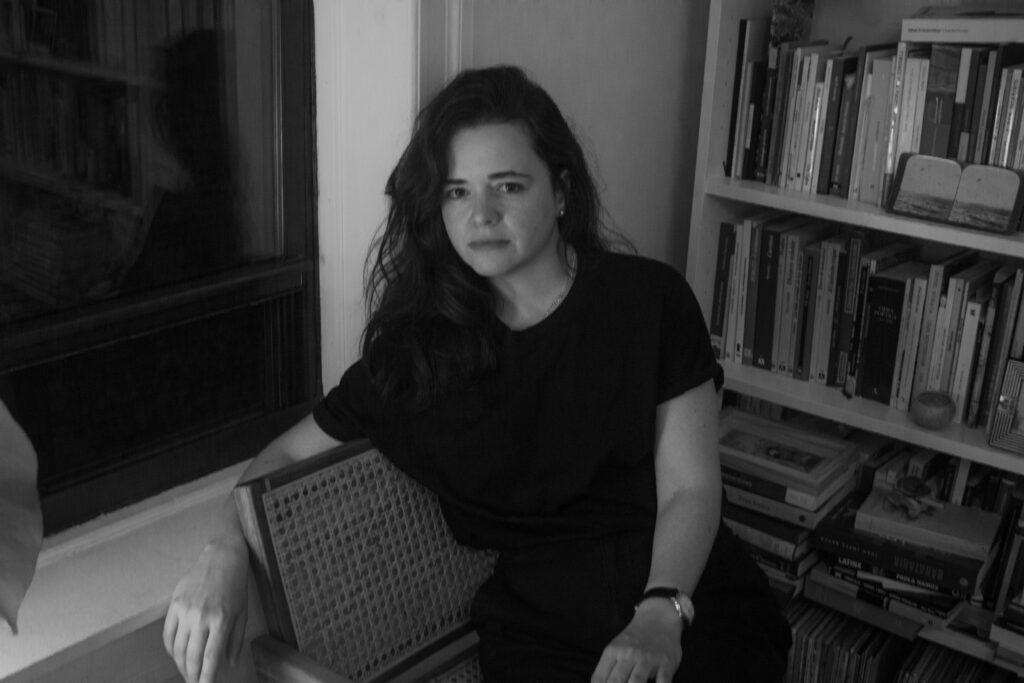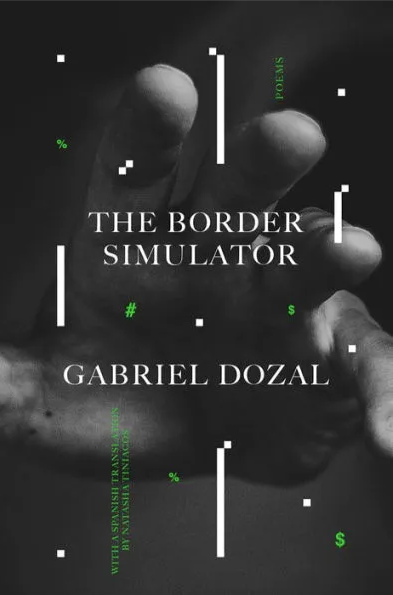
Natasha Tiniacos is a poet, literary translator, and scholar living in New York after having been granted asylum by the U.S. government. M.F.A. in Creative Writing- Poetry (NYU), M.A. in Spanish and Comparative Literature (USC). Currently, she is a doctoral candidate in Latin American, Iberian, and Latino Cultures at The Graduate Center of the City University of New York with research interests in disability and queer disability studies, as well as sound studies in literature and art of the twentieth and twenty-first-century.
She is the author of the forthcoming Contra el régimen de lo fluido/ Against the Regime of the Fluent with translations by Beca Alderete Baca (Ugly Duckling Presse, 2024), Historia privada de un etcétera (Los libros del fuego, 2016), and Mujer a fuego lento (Equinoccio, 2007) National University Prize in Literature, in Venezuela, and translator of Gabriel Dozal’s The Border Simulator/ El simulador de fronteras, recently published by One World, Penguin Random House. She has also collaborated as lyricist in the experimental opera Paraíso, composed by Sokio.
She has been an artist in residence at Campo Air Creative Institute (Uruguay), the Lower Manhattan Cultural Council, the International Writing Program of the University of Iowa, Vermont Studio Center, and Camac, Centre D’ Art in Marnay-sur-Seine, France. In 2019 she was selected for the New York Foundation for the Arts: Performing and Literary Arts 2019 program. She was US Embassy in Caracas visiting professor of American Literature in the Universidad Central de Venezuela.
Her poetry delves into fragmentation, a constant research and reaction to languages and sound, living the fragmentary migration experience. The line between English and Spanish is an axis for the spin of creation and translation. Her artist teaching practice has focused on bilingual poetry workshops for seniors of the Washington Heights and Harlem communities in Manhattan. She has conducted these classes since 2019.
Recent:
The Border Simulator/ El simulador de fronteras by Gabriel Dozal was translated into Spanish by Natasha Tiniacos and published by One World.
Read a review at the Poetry Foundation by Christopher Spaide.
Listen and read our NPR interview.

by Gabriel Dozal, Natasha Tiniacos (Translator)
Paraíso, an experimental chamber opera composed by Sokio with lyrical libretto by Natasha Tiniacos. National Sawdust, June 16th.